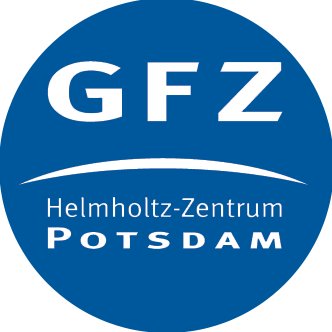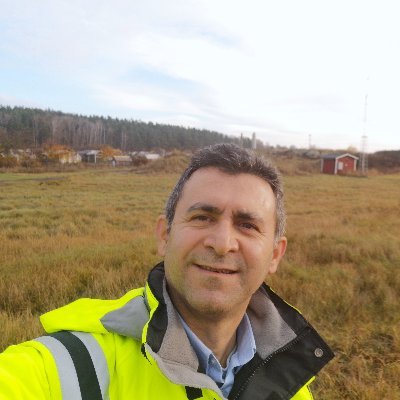
Mahmud Haghshenas
@Mahmudhh
Followers
251
Following
611
Media
28
Statuses
158
Postdoctoral researcher at Institute of Photogrammetry and Geoinformation @unihannover
52°23'08.0"N 9°42'47.7"E
Joined February 2011
New in @ScienceAdvances. Our paper provides a comprehensive analysis of land subsidence across Iran due to aquifer depletion, using Sentinel-1 InSAR. #ScienceAdvancesResearch
https://t.co/Glo5YGVew5
science.org
Intensive groundwater pumping causes widespread land subsidence and threatens the sustainability of water resources across Iran.
2
10
43
A detailed satellite survey of land subsidence in Iran from 2014 to 2020 shows that 3.5% of the country’s land area is subsiding due to groundwater pumping for irrigation. https://t.co/TqGvPPJsNL
0
8
24
بررسی #فرونشست زمین در سرتاسر ایران. دلیل اصلی فرونشست استخراج بیرویه آبهای زیرزمینی است که متاسفانه به جز گیلان در همه استانهای کشور دیده میشه.
New in @ScienceAdvances. Our paper provides a comprehensive analysis of land subsidence across Iran due to aquifer depletion, using Sentinel-1 InSAR. #ScienceAdvancesResearch
https://t.co/Glo5YGVew5
2
5
26
Groundwater loss in Iran is taking on dramatic proportions. In some regions, the ground is sinking almost 40 centimeters per year & huge fissures are opening up. Click here for the news about the latest study of GFZ researcher @MahdiMotagh & his colleague
gfz.de
Analysis of satellite data shows that large parts of the country are affected by ground subsidence.
0
11
23
Grundwasserverlust in Iran nimmt dramatische Ausmaße an. In manchen Regionen senkt sich der Boden deshalb fast 40 Zentimeter pro Jahr und riesige Erdspalten tun sich auf. Hier geht's zu der Nachricht über eine unserer neuesten Studien:
gfz.de
Auswertung von Satellitendaten zeigt, dass weite Teile des Landes von Bodenabsenkungen betroffen sind.
0
6
9
Our findings reveal that except for Gilan, every province in Iran is experiencing land subsidence at various rates due to groundwater depletion. The nationwide subsidence data is available Access the data at https://t.co/je5gLfYxgU
0
0
9
Covering 2014-2020, we found 56,000 km² of Iran's land affected by subsidence, primarily due to excessive groundwater extraction for irrigation. This includes alarming subsidence rates of up to 37 cm/year, posing serious risks to infrastructure and water sustainability.
1
1
11
We are all set to organize our FIRST InSAR workshop at the Department of Civil Engineering, IIT Roorkee India. Stay tuned for more updates. SALIENT FEATURES: 1. SERB sponsored 2. 25 participants (100+ applications from 50+ Indian universities) 3. 11 SAR experts
3
6
47
New update on Sentinel-1B - further attempts to activate power were not successful. Investigations on going☹️
3
15
36
Things are starting to look serious for Sentinel-1B, which has been down since Christmas. Hopefully ESA can resolve the issues: https://t.co/f0d1yCDBpq
0
2
10
On #BlackFriday our master students at @UniHannover are learning, #online and #offline on the campus, how to use #sentinel1 #SAR data in #GoogleEarthEngine for #landcover #classification and #flood mapping. Thank you @Mahmudhh for your support in the lecture
0
3
33
Wow! just got this video! last two #eathquakes M6.0 and M6,3 today, #Iran #Zagros #BandarAbbas #ایران
5
54
224
Geodetic Colloquium at IGG, Uni Bonn, summer term https://t.co/EpbOASoFAY This Thursday 16:15 CEST=UTC+2h I will be talking about "How (Hydro-) Geodesy Monitors the Global Water Cycle – Results from @GlobalCDA, the DFG-Research Unit 2630" (in English)
0
8
18
6-day S1 LiCSAR interferogram for the M7.4 Southern Qinghai earthquake - beautifully highlights shallow afterslip occurring along the fault rupture. Links to data download from https://t.co/aXn1mUkMrQ
@COMET_database @NERC_COMET @ESA_EO
0
20
45
@maferp_13 @CopernicusEU @FraxInSAR @claudiodeluca @EPOSeu @dott109 Just because you were curious of a quick 'n dirty model. A North dipping (strike 283°, dip 75°) nearly pure left-lateral (rake -6°) with slip up to 5 m. But high residuals by the fault trace come from unwrapping/coherence issues. Let's join descending data.
0
5
6
Did we see it coming in InSAR? Well, both yes and no. The dike deformation is clear in sequences of descending (top) and ascending (bottom) S1 interferograms, but there is no short term deformation warning in the last one (up to ~14 hrs before the eruption). Adriano@CDI-KAUST
6
42
136
Also: Happy Spring & #Nowruz! Happy New Year to all of those who celebrate it. I hope the new year & spring bring everyone peace, prosperity, & happiness. 🧩😃🌱
0
2
5
The #fagradalsfjalleruption has started! This is one of the first videos of the eruption taken from a scientific helicopter surveillance flight. Erupting fissure is approx 5-700m long in a valley in central Fagradalsfjall.
8
152
402















